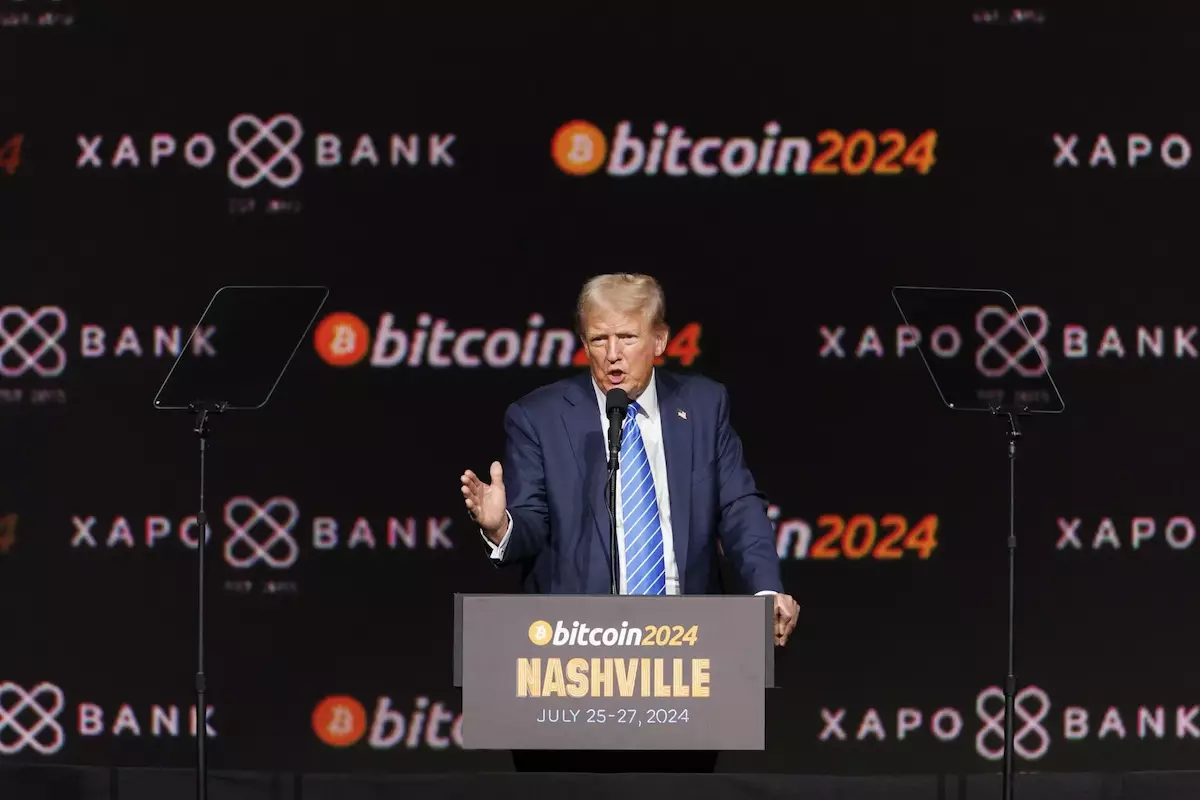The arrival of a potential Trump presidency has sparked extensive discussions across multiple sectors, particularly in the realm of Web3 gaming. Like many industries, Web3 is susceptible to the shifting tides of political leadership, especially in the context of regulation and technology policy. The unique dynamics of this decentralized digital landscape, including innovation, community engagement, and digital ownership, could be significantly influenced by new approaches to digital asset regulation under Trump’s leadership.
Donald Trump’s early skepticism towards cryptocurrency is well-documented. In 2021, he denounced Bitcoin as a “scam,” expressing concerns about its potential to destabilize the already-established US dollar. However, this initial viewpoint appears to have transformed as he recognized the growing significance of digital assets in the modern economy. Should Trump resume the presidency, it is reasonable to speculate that his administration would adopt a more favorable stance towards crypto and blockchain technology.
This shift mirrors global trends where nations are increasingly enacting legislation supporting blockchain integration and crypto-friendly policies. If Trump’s administration prioritizes innovation, we could witness a regulatory environment that encourages the growth of Web3 gaming, which fundamentally relies on cryptocurrencies for in-game economies and digital ownership.
For developers and users alike, a well-defined regulatory framework is crucial. Web3 gaming thrives on tokenized assets; consequently, less restrictive regulations would empower creators to develop and users to participate without the looming shadow of legal repercussions. During Trump’s prior administration, the cryptocurrency market experienced significant fluctuations—both growth and contraction. The industry witnessed Bitcoin’s rapid ascent to nearly $20,000 in 2017, followed by a steep decline to around $3,200 in 2018.
Despite the volatility, subsequent years under Trump’s leadership also saw substantial growth, indicating resilience and potential. The interplay of regulation and market behavior cannot be overstated. As regulatory clarity improves, we can anticipate more robust engagement from established gaming platforms hoping to integrate blockchain solutions.
One of the most important implications of a Trump presidency for the Web3 gaming ecosystem may lie in leadership changes at key regulatory bodies like the SEC. Trump has explicitly criticized Gary Gensler, the current chair of the SEC, for his cautious approach to cryptocurrency regulation. A promise to appoint a more crypto-friendly successor could rejuvenate the space by significantly reducing red tape.
A pro-crypto SEC could bolster investor confidence and foster a more robust gaming economy. By easing regulations surrounding token issuance and trading, Web3 platforms would stand to benefit enormously. The potential influx of institutional investments could lead to expansive growth, legitimizing in-game assets and accelerating Web3’s move toward mainstream acceptance.
Trump’s renewed focus on digital currencies might also create an inviting climate for venture capital investments. The blockchain gaming market has been burgeoning, attracting millions of users globally. If the regulatory landscape supports this explosion of interest, we could see a proliferation of decentralized gaming platforms. Moreover, traditional gaming companies might feel incentivized to experiment with blockchain technology, paving the way for innovative collaborations.
Such collaborations could be critical as the country’s crypto policy not only influences domestic markets but international ones as well. A U.S.-friendly approach to blockchain could spur other nations to reevaluate their regulatory strategies, potentially making America a linchpin in global digital innovation.
While the prospect of a pro-crypto administration under Trump may seem promising, it is crucial to recognize the complexities involved. The future of Web3 gaming will not solely hinge on regulatory changes; it will also be influenced by evolving technologies, user needs, and the broader economic context. Moreover, the unpredictable nature of market dynamics and geopolitical considerations introduces an element of uncertainty that all stakeholders must navigate carefully.
The potential ramifications of a Trump presidency on Web3 gaming encapsulate a landscape fraught with both challenges and opportunities. Efforts toward regulatory clarity, a new vision at the SEC, and an increasing inclination toward innovation could well define the future growth of this dynamic space. While the outlook may appear bright, it is imperative for developers, investors, and users to stay attuned to the ever-changing regulatory landscape as they forge ahead in their Web3 gaming journeys.

